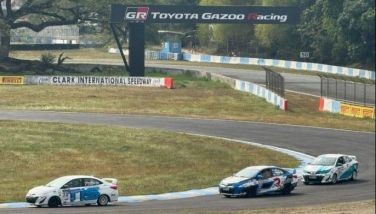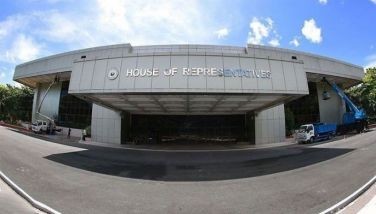Temper
I was in New Jersey before, during, and after superstorm Sandy. There I caught a glimpse again of nature’s temper, how it could devastate even the hardiest of communities in the northeast part of the most powerful nation on earth. I was envious of the systematic preparations and political will to move people out of harm’s way. Even the accuracy of the scientific predictions of the storm’s trajectory and the early warning systems that were activated prior to landfall were something to be marveled at.
And yet, for all our wealth and resilience, we were unprepared for the surge of sand and sea that crippled transport and energy systems in the wake of the storm. Some compared the mood in the aftermath to 9-11. Others speculated whether this was global warming in retribution. The scientists among us ventured to say warmer waters helped fuel and steer the storm, and that global warming was really just “weather on steroids.” Hard to blame one weather disturbance on warming temperature trends but not difficult to say that such trends could drive “high performance” ferocity.
On the eve of the storm, when my sister and I went shopping for supplies, shelves were already emptied of bread and water. The hoarding reminded me of the time in the 1990s when people in Georgia were told that the world was about to end. Some stored groceries in basements. I wondered how hoarding groceries could have tided people over the end that was supposed to have been just around the corner.
And now we have this Mayan calendar stuff to tell us that sometime December this year, the end is near and we all have to face the final curtain.
In 2000 (the time of Y2K and the start of the third millennium), the Ateneo Professional Schools invited me to give a Lenten lecture on Armageddon, the last and dramatic collision between good and evil that is supposed to bring about a catastrophic end of the world. Why invite me, I asked the organizers. Was it because of my work on disasters and climate change? Well, yes, and the fact that as a priest, I might have had some insider info on the Day of Judgment that was supposed to follow these distressing things.
I no longer remember the entirety of what I said then but I do recall sharing a quote from Buechner, proclaiming and assuring us (somewhat) that the One who will judge us is the One who loves us. There will be justice, surely. But pray to God please that that justice be tempered with mercy.
Perhaps that is also what God and the angels pray to us that we do and become: that our justice, our being wronged, our sense of fairness be tempered with mercy.
That is not easy.
As perhaps it will not be easy on God as well on the Day of Judgment when he weighs in the evidence of eclipsed lives and tears suffered by His little ones (the least of our own) at the hands of those who were unjust and proud and without mercy.
In those days after that tribulation, the sun will be darkened, and the moon will not give its light, and the stars will be falling from the sky, and the powers in the heavens will be shaken. And then they will see ‘the Son of Man coming in the clouds’ with great power and glory, and then he will send out the angels and gather his elect from the four winds, from the end of the earth to the end of the sky.
I do not know how much of fear and trembling will bring us to our senses. It does seem to work in public policy and classroom management, many times in hospitals too. And yet, pace Machiavelli, while the political strategy of sticks (not carrots) might gain us some mileage in the near term, striking the fear of hellfire in callous and unrepentant hearts will only get us contrition and change that cannot be sustainable or lasting or deep.
When discerning and deciding how we might lead our lives, Ignatius Loyola (that jedi master of spiritual discernment) counseled that it is always good to begin with the end and to look at our lives through the lens of eternity. He knew all too well that when it comes to the way we deal with Sandy or Sendong or with any of the storms in our lives, it is the short and narrow term that makes for much distortion and clutching and hoarding.
Christmas is just around the corner. We will celebrate again the first coming with carols and every manner of tenderness and kindness to one another. We will do all this, oblivious of the terrors the second coming might hold.
Of that second coming, must you be afraid? Be very afraid? Only perhaps if you’ve known and can appreciate how not easy it is for justice to be tempered with mercy.
* * *
Fr. Jose Ramon T. Villarin SJ is president of the Ateneo de Manila University. For feedback on this column, email tinigloyola@yahoo.com
- Latest
- Trending





























